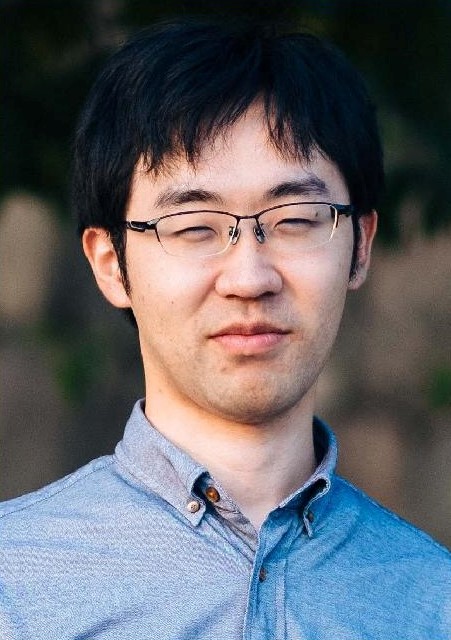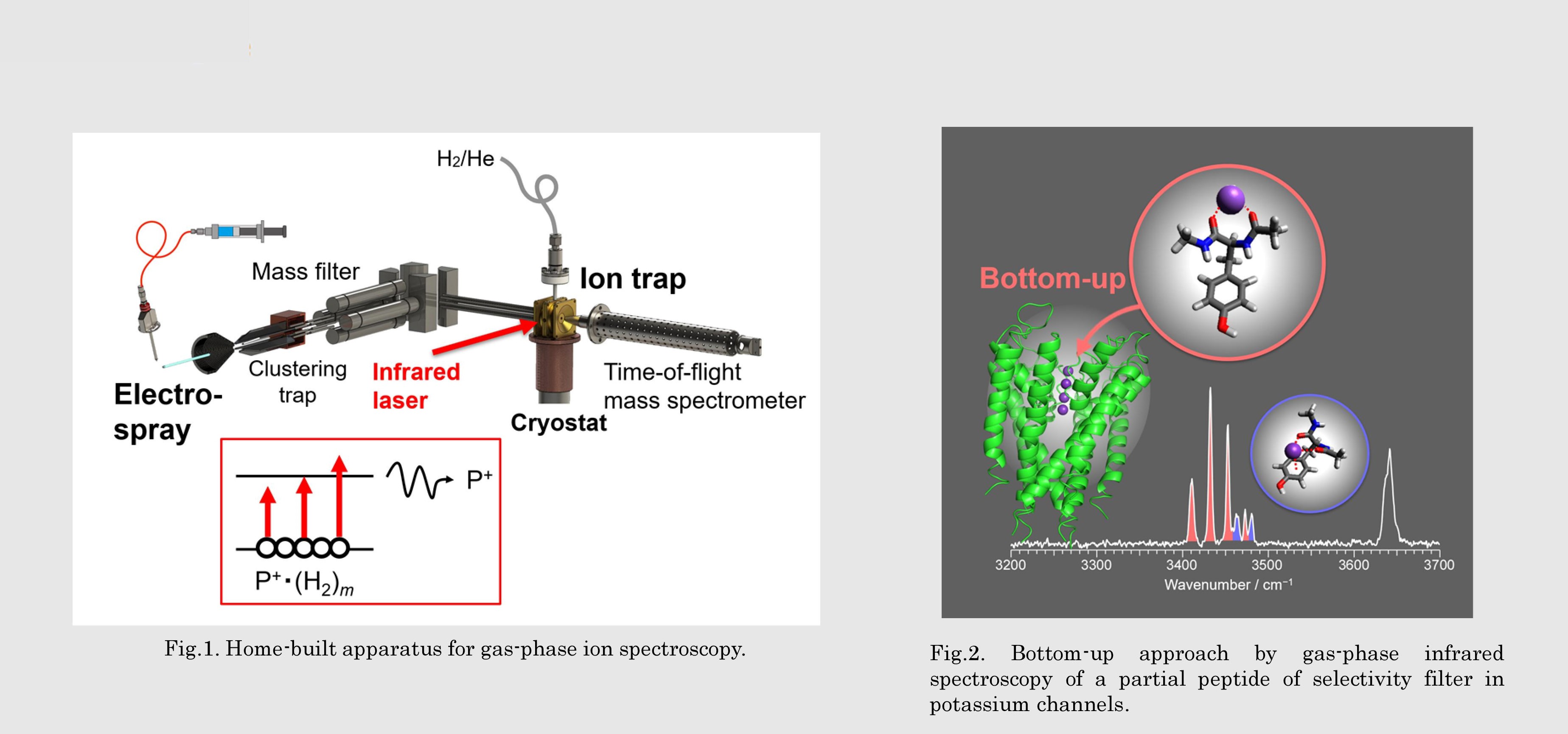CLS
Laboratory for Chemistry and Life Science, Institute of Integrated Research, Institute of Science Tokyo
東京科学大学
総合研究院
化学生命科学研究所

LAST UPDATE 2020/06/10
-
研究者氏名
Researcher Name平田圭祐 Keisuke HIRATA
助教 Assistant Professor -
所属
Professional Affiliation東京科学大学総合研究院化学生命科学研究所
分子機能化学領域
Laboratory for Chemistry and Life Science, Institute of Integrated Research, Institute of Science Tokyo
Molecular functions -
研究キーワード
Research Keywords気相イオン分光
エレクトロスプレーイオン化法
冷却イオントラップ分光
質量分析
分子認識
Gas-Phase Ion Spectroscopy
Electrospray Ionization
Cold Ion Trap Spectroscopy
Mass Spectrometry
Molecular Recognition
- 研究テーマ
Research Subject -
気相イオン分光による生体分子認識機構の解明
Elucidation of Biomolecular Recognition by Gas-Phase Ion Spectroscopy
研究の背景 Background
生体分子の分子認識は精密で立体構造(コンフォメーション)に敏感です。したがって、生体分子のコンフォメーションを精密に解析することは分子認識機構を解明するうえで非常に重要です。しかし、室温における固体・溶液中の生体分子の分光では熱による振動や周囲の分子の影響でコンフォメーションを精密に決定することが困難です。最近では、生体分子を真空中に取り出して極低温分光を可能にする気相イオン分光の手法が開発され、生体分子のコンフォメーションを精密に決定できるものと期待されています。
Biomolecular recognition is precise and sensitive to the conformations of biomolecules. Therefore, precise analysis of biomolecular conformations is highly significant. However, precise conformational determination of biomolecules is difficult by spectroscopy in solid and solution phases at room temperature due to thermal fluctuation and influence by the surrounding molecules. Nowadays, gas-phase ion spectroscopy technique has enabled cryogenic spectroscopy of biomolecules, which can precisely determine the conformations of biomolecules.
研究の目標 Outcome
生体内でのイオン輸送に大きな役割を果たすイオンチャネルやイオノフォア、神経伝達物質であるカテコールアミン類を対象とし、気相イオン分光法を用いてそのコンフォメーションを決定することを目指しています。生体分子のように非常に大きな分子を扱う場合は、重要な部分系のみを取り出した分子を用いて測定を行い、ボトムアップ方式で分子認識の機構に迫ります。
I aim at determining the conformations of ion channels, ionophores, and neurotransmitters (catechol amines) by gas-phase ion spectroscopy. Both ion channels and ionophores play a significant role in ion transport in our body. When I focus on a large biomolecule, I will measure an important partial system of the biomolecule, which leads to the essence of molecular recognition mechanisms by bottom-up approach.
研究図Research Figure

Fig.2. Bottom-up approach by gas-phase infrared spectroscopy of a partial peptide of selectivity filter in potassium channels.
文献 / Publications
J. Mol. Spectrosc., 332, 45–51 (2017). Angew. Chem. Int. Ed. 57, 5626–5629 (2018). Phys. Chem. Chem. Phys. 21, 561–571 (2019).J. Phys. Chem. Lett. 10, 2470–2474 (2019). ChemPhysChem 21, 712–724 (2020).
研究者HP
- hirata.k.ai@m.titech.ac.jp
- http://www.csd.res.titech.ac.jp/indexj.html